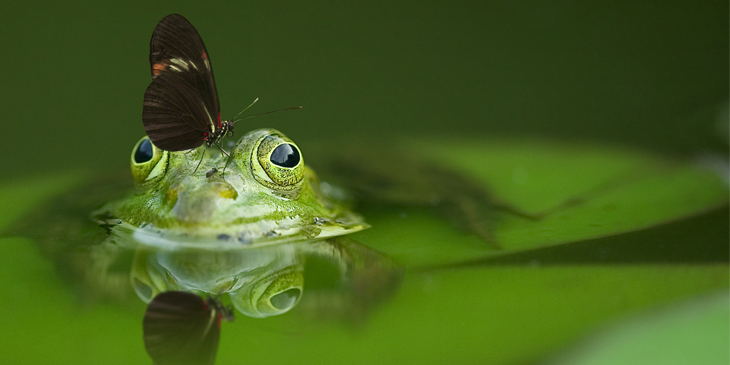05 June 2020

Our UK exam board OCR brought together a wide range of expert naturalists and environmental advocates to mark the launch of a consultation on the shape of a new GCSE in Natural History and what it could mean for secondary schools.
From broadcaster and nature writer Mary Colwell, to the founder of the Eden Project, Tim Smit, advocates with a passion for nature formally began the consultation in a one-hour online event on 4 June, hosted by naturalist, author and BAFTA award-winning TV producer Stephen Moss. Representatives from The Natural History Museum, The Wildlife Trusts, and Teach the Future all took part in the event where we shared our initial research and thinking.
Mary Colwell began her campaign for a GCSE in Natural History nearly 10 years ago. Along the way, she gained the support of influential voices such as Green Party MP Caroline Lucas, as well as helping to generate over 10,000 signatures on a UK Parliament petition. In 2019, she began exploring how to make her vision a reality with Tim Oates CBE, Cambridge Assessment’s Director of Assessment Research and Development.
Mary said: “It is time we put nature back into the very heart of education, not as an add-on but as a core subject that everyone should be taught at some level – and have the option to study in more depth if they want to.” She continued: “I think young people really want to know where they’re living, what’s around them, how they’re connected to it, and they want to know how that fits into the bigger picture of the world.”
The consultation will seek views on the purpose of natural history, as well as exploring potential key themes such as conservation, the early world, and the study of flora and fauna. It will also seek views on observing nature in real situations outside the classroom. The online consultation will be open to teachers and environmental experts, as well as to anyone with a passion for nature. It closes on Friday 17 July.
Jill Duffy, OCR Chief Executive, said: “We want to reach out to a range of voices to gain their insight and experience, and we will share what we hear with the Department for Education (DfE) and with our regulator, Ofqual. Any new GCSE requires approval from the DfE and schools and colleges also need time to prepare for teaching. We are looking at a new GCSE for first teaching from 2022 at the earliest. Nevertheless, we’re excited by the prospect of helping digitally native young people to become ‘nature’ natives too. And although we started thinking about a new GCSE way before lockdown, many of us have never been more aware of the value of the natural world than now.”
Cambridge Assessment’s Tim Oates said: “Education has a key part to play in protecting the environment and renewing contact with nature. We see the formal GCSE qualification, as one piece of a jigsaw of measures which we need to address the decline in young people’s engagement with the environment. It’s very important that we design Natural History to complement existing qualifications and fulfil a unique role in what it does - we welcome views which will help with this. How can we make the long tradition of natural history translate into a contemporary and relevant subject appropriate for young people today? We hope as many people as possible help to answer that question by taking part in the consultation.”